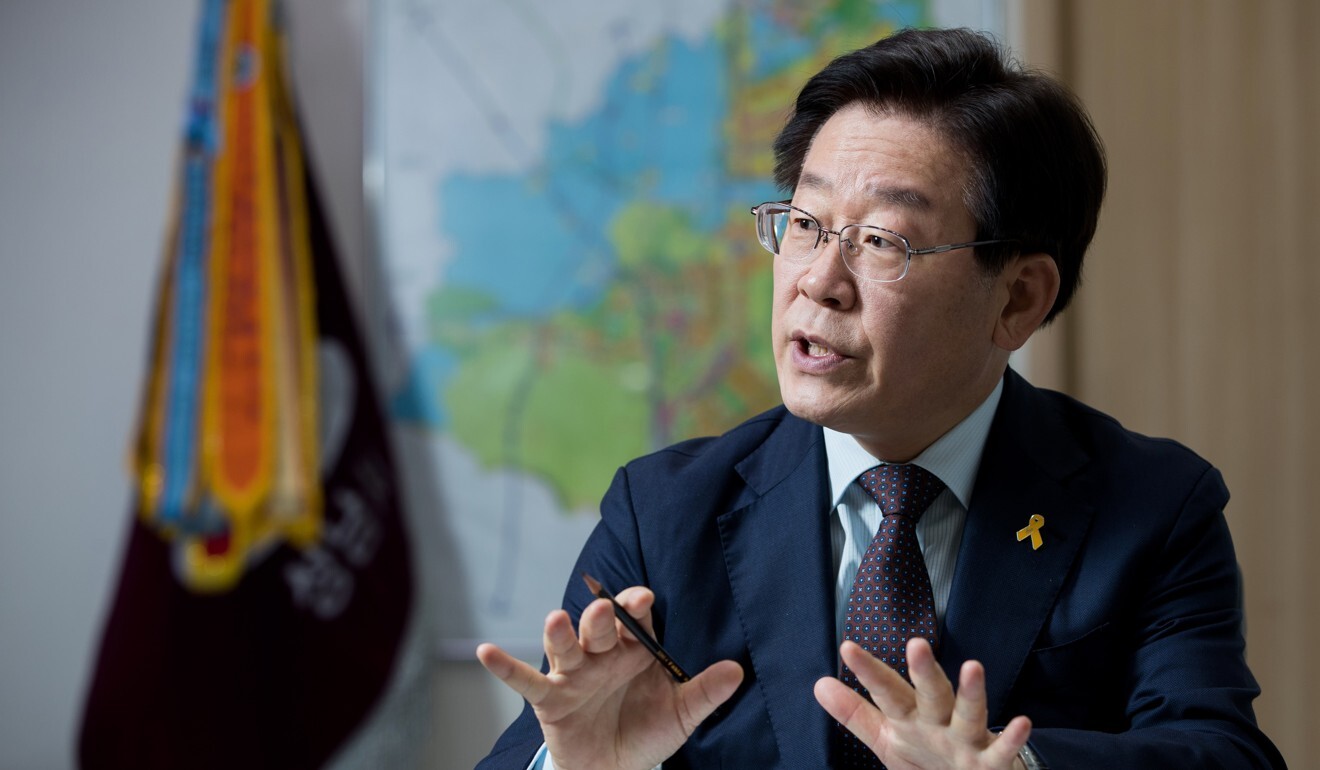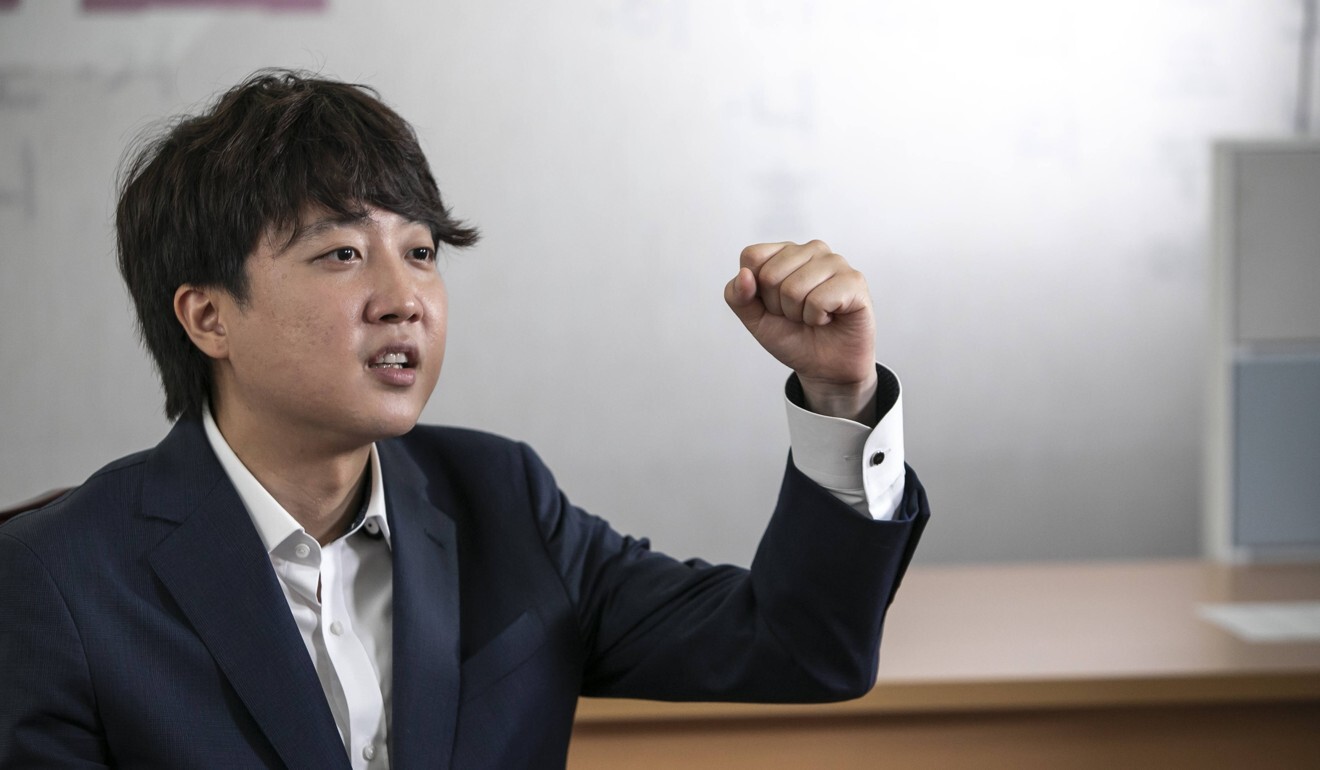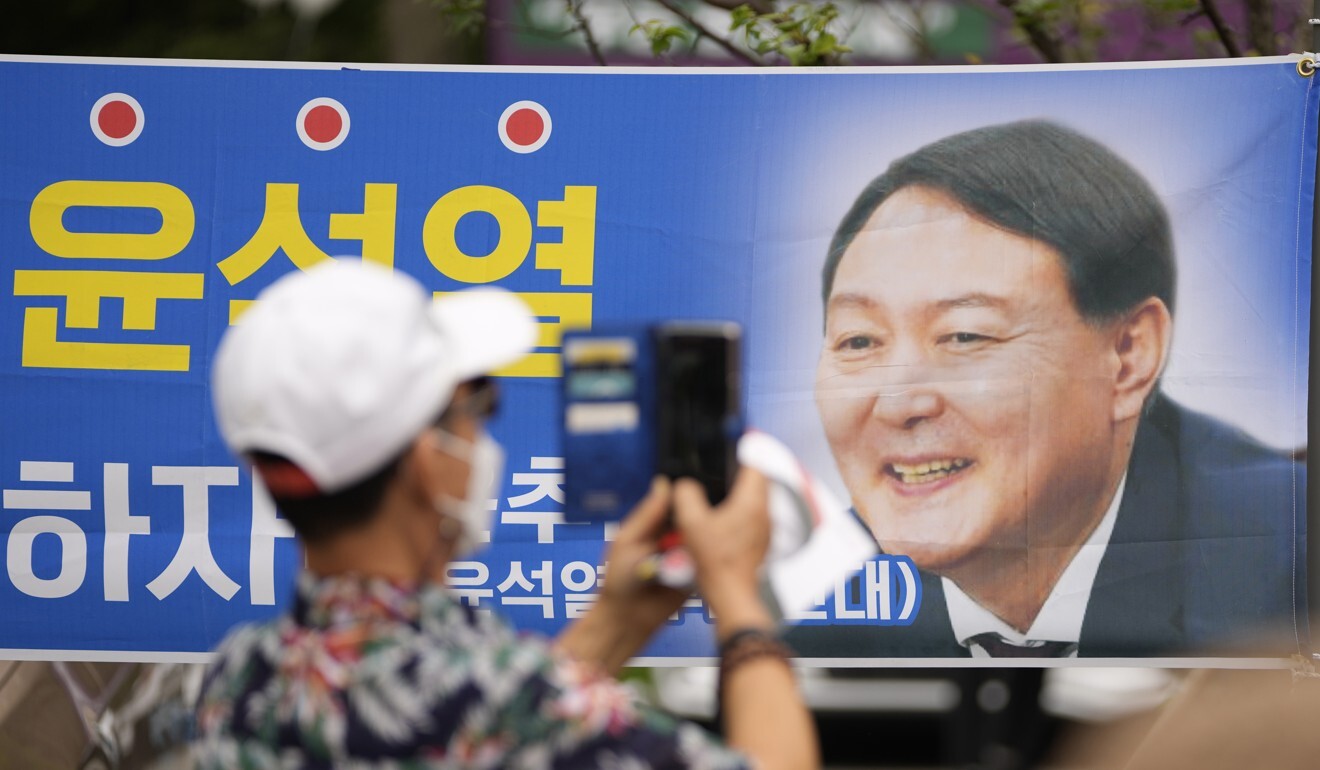
How South Korea’s 2022 presidential election could reshape its US-China balancing act
- The People Power Party, which is the main opposition, has been propelled by support from younger voters, who overwhelmingly prefer the US to China
- On the other hand, should Lee Jae-myung from the Democratic Party succeed Moon Jae-in as president, he seems poised to seek closer ties with Beijing
On the other hand, if Lee Jae-myung from the ruling Democratic Party becomes president, that could also shake the US-South Korea alliance. Lee, the Gyeonggi province governor, believes Seoul should strengthen relations with Beijing and elevate them to the level of a strategic partnership.
Heightened US-China tensions have it more difficult to maintain this position of neutrality, particularly as a younger generation of voters and leaders lean towards Washington.

However, the shift in public opinion occurred largely after South Korea weathered China’s economic retaliation over the 2017 deployment of the US-built Terminal High Altitude Area Defence (THAAD) anti-missile defence system.
Many South Koreans have also been angered by the perception that Chinese social media users have sought to appropriate aspects of their ancient culture, such as kimchi and hanbok (traditional Korean dress), by suggesting they are in fact Chinese.
Aside from foreign policy, next year’s election looms as a referendum on Moon’s presidency, the performance of the ruling party and the South Korean public’s appetite for change.
The Democratic Party has been hobbled by a string of controversies involving Moon’s aides, and the administration has been criticised for failure to curtail runaway housing prices as well as a scandal over insider property speculation implicating government officials.
In April’s by-elections, the ruling party suffered a heavy defeat as younger voters delivered landslide victories for the PPP in the mayoral races in Seoul and Busan.
Lee, the PPP leader, has never held public office but was credited with helping Oh Se-hoon win the Seoul mayoral race. Although his rise has excited a young electorate, several veterans regard Lee as a threat.

Older politicians in both the Democratic Party and the PPP have questioned his lack of experience while rivals for the party leadership cast him as populist in the mould of former US president Donald Trump. It did little to damage Lee’s support among younger voters, and he secured the party leadership with 58 per cent of the vote.
The PPP emerged from the political fallout of former president Park’s impeachment in 2016, which devastated her Saenuri Party, prompting it to merge with several other parties to form the PPP. For the first time since Park’s impeachment, the PPP’s approval rating has climbed to nearly 39 per cent, far exceeding the Democratic Party’s 29 per cent support.
Older South Koreans generally maintain party affiliation based on ideologies stemming from the Cold War and the country’s democracy movement, but younger voters have demonstrated greater flexibility, particularly if elected officials do not keep their campaign promises.
Yoon is currently being advised on foreign policy and national security by Kim Sung-han, a former foreign affairs deputy minister. He advised Lee Myung-bak’s administration to prioritise the US alliance, regarding it as crucial to denuclearisation of North Korea. To this effect, the PPP is expected to take a tougher line on North Korea than the Democratic Party has adopted under Moon.
For his part, Lee Jun-seok last month said “unification by absorption through systemic superiority” would be the only way to reunify the Korean peninsula and has ruled out compromise with Pyongyang.

On the other hand, should Lee Jae-myung from the Democratic Party succeed Moon as president, he would most likely seek closer relations with China. He is being advised by Moon Chung-in, an enthusiastic proponent of strong South Korea-China ties.
Lee also opposes US efforts to encourage South Korea-Japan cooperation and has attacked Tokyo over the various historical issues, such as forced labour and sexual slavery, that have contributed to the diplomatic rift between the two countries. He has also denounced US troops stationed in South Korea as an “occupying force”.

